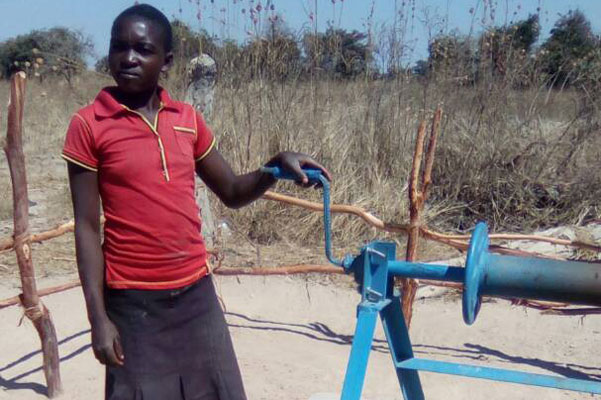
The Zimbabwe Red Cross Society (ZRCS) has embarked on community resilience projects aimed at empowering communities in Kariba district so that they are able to withstand future shocks caused by disasters.
By Staff Reporter

The four-year project is being funded by the Danish International Development Agency (Danida) through Danish Red Cross.
Part of the ambitious project includes the provision of basic sanitation facilities to the Nyaminyami community, where open defecation and diarrhoeal diseases were the order of the day.
According to a vulnerability capacity assessment carried out by the ZRCS, a large chunk of the population in Nyaminyami practise open defecation and fetch water from unprotected water sources.
The assessment also identified major hazards, which include drought, flash floods, malaria, diarrhoeal diseases, human and wildlife conflict, strong winds and wave.
This prompted ZRCS to intervene, but the organisation’s secretary-general Maxwell Phiri said their way of doing things was unique in that they give communities ammunition so that they can stand on their own without external support when disasters strike.
He said the projects allowed the communities to champion their own resilience, by determining the solutions to the priority risks that face them.
- Chamisa under fire over US$120K donation
- Mavhunga puts DeMbare into Chibuku quarterfinals
- Pension funds bet on Cabora Bassa oilfields
- Councils defy govt fire tender directive
Keep Reading
“Our programmes are not an imposition by the Red Cross to communities but are community-owned. The challenges, including lack of water and sanitation, toilets, clean safe water sources, were identified by the community as a priority through a vulnerability capacity assessment as we sought to build better resilient communities,” Phiri said.
“Generally, community members and civil protection committees at lower levels are benefitting through increased knowledge on disaster risk reduction issues while Red Cross volunteers play a key role in health and hygiene promotion with information being cascaded door to door.”
Phiri said Red Cross was focusing on thematic areas of water, sanitation and hygiene as well as disaster risk reduction in Nyaminyami’s wards 3, 6, 7 and 8. He paid tribute to Danish Red Cross who are bankrolling the projects.
“I am certain that the resilience and capacities of the communities and key stakeholders is being increased through enhanced knowledge on disaster risk reduction which is a key component of this intervention,” he said.
“We want to acknowledge the financial support we are receiving from Danida through Danish Red Cross.”
Environmental health technician for Mola Ward 3, Taurai Gilbert Nyambo paid tribute to Red Cross.
“Since Red Cross’ intervention, we have seen a marked decrease in diarrhoeal diseases. Sanitation coverage in this area is generally low and we applaud the Red Cross for this intervention,” he said.
“For instance, in July last year before the construction of these latrines by Red Cross, we recorded over 165 diarrhoeal and dysentery cases but this year for the same month we recorded only 58. So, we are grateful and wish the Red Cross could extend their coverage so that we reach 25% to 30% in terms of sanitation coverage in this area.”
His sentiments were also echoed by the area’s councillor Goodward Siabwanda, who said ZRCS was promoting a new sanitation culture
“Red Cross supported this area with toilet construction and fishing camps have also been supported with disaster risk reduction awareness. The programmes have been very helpful and the engagement of community members through vulnerability capacity assessments ensures ownership of the intervention since it is the community that identified problems and solutions thereof. We have seen a decrease in diarrhoeal diseases and an increase in homesteads with toilets,” he said.
About 2,6 billion people worldwide don’t have toilets and one billion practise open defecation.
Part of the programme Red Cross is undertaking includes the rehabilitation of water points and construction of water troughs while water point committees were also being trained. The project also provides training on hygiene promotion in communities.
Red Cross is also equipping communities to be knowledgeable about their hazards and risks through activities like community early warning systems training.











